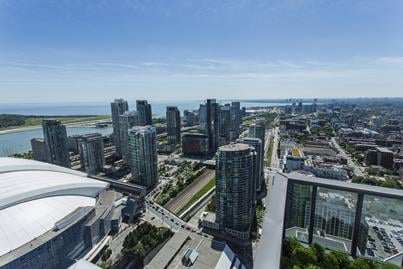Even a small decline in the city’s real estate prices would tear off billions in provincial revenue, fiscal watchdog warns

Over the past few years, elevated activity and growth in Toronto’s residential real estate market has made it a powerhouse in the Ontario economy—ironically leading to the province being heavily dependent on the health of the city’s housing sector, according to an independent fiscal watchdog.
Ontario’s Financial Accountability Office recently warned that even a small downward correction in Toronto home prices will lead to the provincial budget suffering billions in losses, the Owen Sound Sun Times reported.
“In the first decade of the 2000s, that revenue ranged between about $1 billion and $1.5 billion a year; in the last few years, it's risen to $2.5 billion,” markets observer David Reevely wrote in his February 20 analysis.
The FAO estimated that a 10 per cent decline in real estate prices would affect provincial revenues by $1.1 billion annually by 2020, and by as much as $2.2 billion every year in the worst-case scenario.
A corollary to this development is that the provincial government would now be reluctant to implement any affordability interventions that might disrupt the steady revenue.
“The mad rise in real-estate prices is terrible for young people and locks up a lot of wealth in hard-to-move assets,” Reevely explained, “but it has created a huge windfall for Premier Kathleen Wynne and Finance Minister Charles Sousa. Pursuing housing affordability is not in their, or any provincial politician’s, immediate political interests.”
“[Ontario] collects sales tax on new homes and on fees attached to buying property such as real-estate agents’ commissions. And it collects taxes on a lot of the things people buy when they move, from new furniture to truck rentals. Plus construction employs people who pay income taxes and supports companies that pay corporate taxes,” he added. “If those gushers dry up, that’s bad news.”
Last week, BMO Capital Markets chief economist Doug Porter issued a strong warning after the Canadian Real Estate Association revealed that average home resale prices in Toronto have grown by 22.6 per cent year-over-year in January, in turn inflating the national average by 15.0 per cent.
“Let's drop the pretense. The Toronto housing market - and the many cities surrounding it - are in a housing bubble,” Porter said. “Toronto and any city that is remotely within commuting distance are overheating, and perhaps dangerously so.”
Ontario’s Financial Accountability Office recently warned that even a small downward correction in Toronto home prices will lead to the provincial budget suffering billions in losses, the Owen Sound Sun Times reported.
“In the first decade of the 2000s, that revenue ranged between about $1 billion and $1.5 billion a year; in the last few years, it's risen to $2.5 billion,” markets observer David Reevely wrote in his February 20 analysis.
The FAO estimated that a 10 per cent decline in real estate prices would affect provincial revenues by $1.1 billion annually by 2020, and by as much as $2.2 billion every year in the worst-case scenario.
A corollary to this development is that the provincial government would now be reluctant to implement any affordability interventions that might disrupt the steady revenue.
“The mad rise in real-estate prices is terrible for young people and locks up a lot of wealth in hard-to-move assets,” Reevely explained, “but it has created a huge windfall for Premier Kathleen Wynne and Finance Minister Charles Sousa. Pursuing housing affordability is not in their, or any provincial politician’s, immediate political interests.”
“[Ontario] collects sales tax on new homes and on fees attached to buying property such as real-estate agents’ commissions. And it collects taxes on a lot of the things people buy when they move, from new furniture to truck rentals. Plus construction employs people who pay income taxes and supports companies that pay corporate taxes,” he added. “If those gushers dry up, that’s bad news.”
Last week, BMO Capital Markets chief economist Doug Porter issued a strong warning after the Canadian Real Estate Association revealed that average home resale prices in Toronto have grown by 22.6 per cent year-over-year in January, in turn inflating the national average by 15.0 per cent.
“Let's drop the pretense. The Toronto housing market - and the many cities surrounding it - are in a housing bubble,” Porter said. “Toronto and any city that is remotely within commuting distance are overheating, and perhaps dangerously so.”
Related stories:
Blazing Toronto real estate market inflating national average home price
Condo units now among hottest commodities in downtown Toronto



